By sending troops into Rostov province, Wagner's leadership seems to have been reckless in challenging the red lines of the Russian military leadership.
For months, Yevgeny Prigozhin, head of the private military corporation Wagner, has been harshly criticizing the Russian military leadership, causing the relationship between them to increasingly crack amid the ongoing conflict in Ukraine.
Mr Prigozhin accused Russian military commanders of failing to provide ammunition during the crucial and fierce fighting in the eastern Ukrainian city of Bakhmut. In a video posted in May, he stood over the bloody bodies of soldiers killed in the fighting and criticised Defence Minister Sergey Shoigu and Chief of the General Staff Valery Gerasimov for being “weak”.
Tensions escalated when Prigozhin earlier this month refused to sign a contract with the Defense Ministry that would have put Wagner under direct control of the Russian military. He said Wagner served Russia’s interests, but its effective functioning would be compromised if it had to follow Shoigu’s orders.
Those disagreements have only stopped at verbal fights, and the most significant incident was the arrest of a Russian lieutenant colonel and brigade commander by Wagner, who was accused of firing on a convoy of this force while drunk.
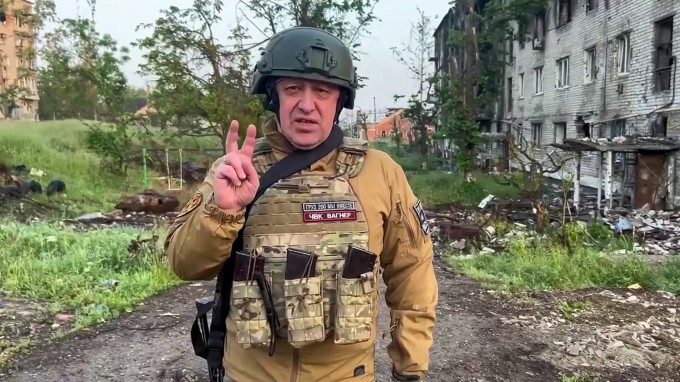
Mafia boss Wagner Prigozhin in the city of Bakhmut last month. Photo: AFP
However, things seemed to have gone too far on the night of June 23, when Prigozhin accused Defense Minister Shoigu and Chief of the General Staff Valery Gerasimov of ordering a missile attack on a Wagner training camp in Ukraine that caused heavy casualties. The Russian Defense Ministry denied the accusation.
Wagner boss commanded thousands of gunmen under his command to withdraw from Ukraine, enter the Russian border and deploy armed forces to control military facilities in Rostov province, southern Russia.
"We have entered the Rostov region military command and taken control of the capital's military facilities, including an airport," Prigozhin announced at 7:30 a.m. (11:30 a.m. Hanoi time) on June 24. Boss Wagner called this a "march of justice, not a coup" and asked to meet directly with Mr. Shoigu.
Witnesses described multiple gunshots in Rostov. Prigozhin said Wagner soldiers shot down a Russian military helicopter that allegedly opened fire on the convoy.
The Russian government responded immediately, with a series of provinces announcing tighter security. The mayor of Moscow said "anti-terrorist" measures had been deployed in the Russian capital, while Rostov and Lipetsk provinces deployed security forces.
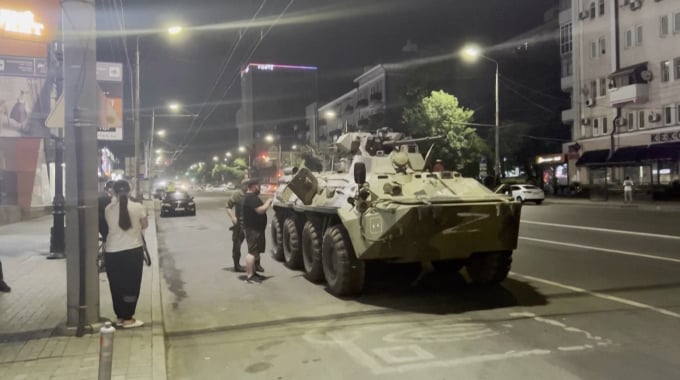
Armored vehicles on the streets of Rostov in the early morning of June 24. Photo: Reuters
The Russian Federal Security Service (FSB) announced on the same day that it had opened a criminal investigation against Prigozhin and called for the arrest of the Wagner leader on charges of inciting armed rebellion. This is the most serious charge and the first legal action taken by Russia against Prigozhin for "crossing the red line", which could end the career of the Wagner boss.
The Institute for the Study of War (ISW), based in Washington, USA, commented that Prigozhin's actions were no different from "an armed uprising against the Russian Ministry of Defense", instead of waiting for support from the Kremlin to put pressure on the Ministry of Defense.
With his harsh rhetoric and actions of sending troops into territory and seizing military barracks, "Prigozhin is becoming increasingly reckless," said Nigel Gould-Davies, senior fellow for Russia and Eurasia at the International Institute for Strategic Studies in Britain.
Sergei Markov, a pro-Kremlin political commentator, said that Prigozhin was able to act so boldly because he believed in his growing influence and power. After Wagner captured the city of Bakhmut, Prigozhin became "a symbol of Russia's military victory" in the eyes of millions of Russians and won the trust of President Vladimir Putin.
Russia has relied heavily on the Wagner force's spearhead role as the military needs time to recover from successive setbacks in Ukraine late last year.
President Putin and military leaders have yet to comment on Prigozhin’s statements and actions. However, Gould-Davies said that if Prigozhin’s “rebellious actions” are not quickly quelled, the unrest could affect the campaign in Ukraine.
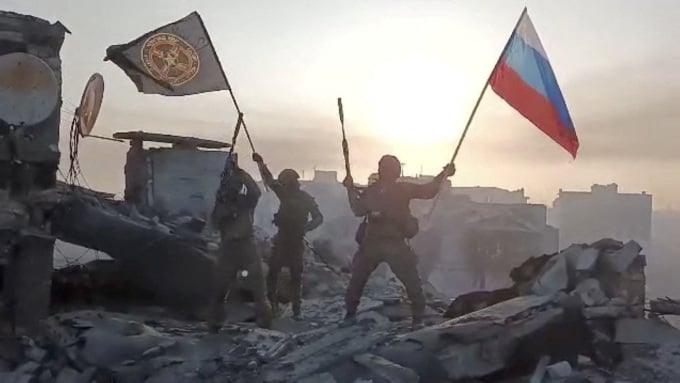
Members of the Wagner group raise a Russian flag and a Wagner flag over an undisclosed ruined building in a video released on May 20. Photo: Reuters
Although Wagner often dodges questions about his political ambitions, Gould-Davies says "there are signs that Mr Prigozhin is looking for some kind of political future".
While Prigozhin owes much of his current status and influence to President Putin, Wagner's leadership sees itself as an outsider, with its criticism of Russia's military leadership and attempts to gain public attention, according to Andrei Kolesnikov, a fellow at the Carnegie Endowment.
The Wagner leader has called for Russia to launch a full-scale war in Ukraine, including calling for a nationwide mobilization and the introduction of martial law in Russia. However, Kolensnikov notes that the vast majority of Russians do not support this path. "One should not overestimate Prigozhin's influence and political prospects, as well as the military adventure he is conducting on Russian territory," the expert notes.
Thanh Tam (According to AP, WP )
Source link


![[Photo] General Secretary concludes visit to Azerbaijan, departs for visit to Russian Federation](https://vphoto.vietnam.vn/thumb/1200x675/vietnam/resource/IMAGE/2025/5/8/7a135ad280314b66917ad278ce0e26fa)
![[Photo] General Secretary To Lam begins official visit to Russia and attends the 80th Anniversary of Victory over Fascism](https://vphoto.vietnam.vn/thumb/1200x675/vietnam/resource/IMAGE/2025/5/8/5d2566d7f67d4a1e9b88bc677831ec9d)
![[Photo] Prime Minister Pham Minh Chinh meets with the Policy Advisory Council on Private Economic Development](https://vphoto.vietnam.vn/thumb/1200x675/vietnam/resource/IMAGE/2025/5/8/387da60b85cc489ab2aed8442fc3b14a)
![[Photo] National Assembly Chairman Tran Thanh Man chairs the meeting of the Subcommittee on Documents of the First National Assembly Party Congress](https://vphoto.vietnam.vn/thumb/1200x675/vietnam/resource/IMAGE/2025/5/8/72b19a73d94a4affab411fd8c87f4f8d)
![[Photo] President Luong Cuong presents the decision to appoint Deputy Head of the Office of the President](https://vphoto.vietnam.vn/thumb/1200x675/vietnam/resource/IMAGE/2025/5/8/501f8ee192f3476ab9f7579c57b423ad)

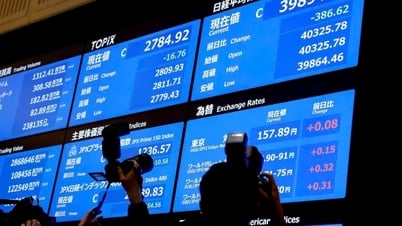


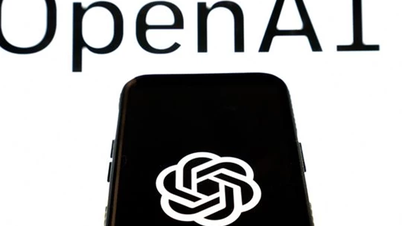

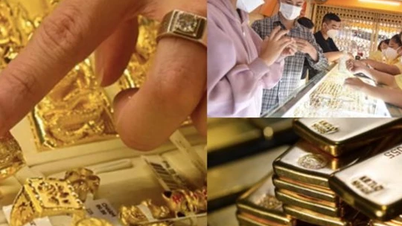
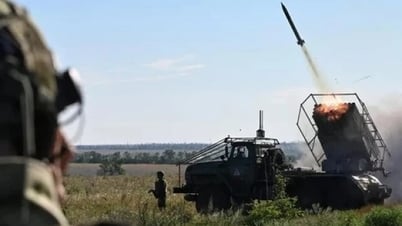

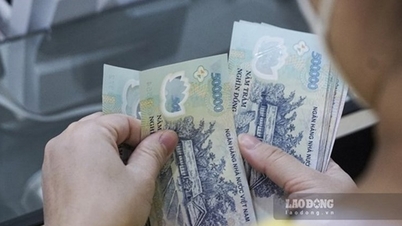

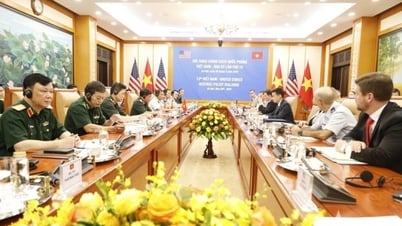


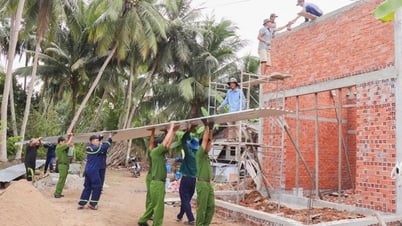
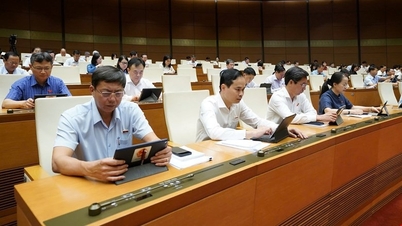
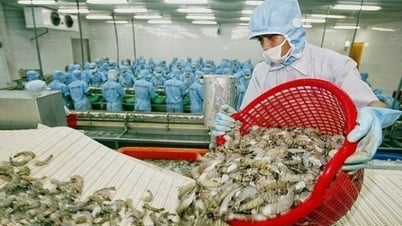










































![[Photo] Prime Minister Pham Minh Chinh talks on the phone with Singaporean Prime Minister Lawrence Wong](https://vphoto.vietnam.vn/thumb/402x226/vietnam/resource/IMAGE/2025/5/8/e2eab082d9bc4fc4a360b28fa0ab94de)

















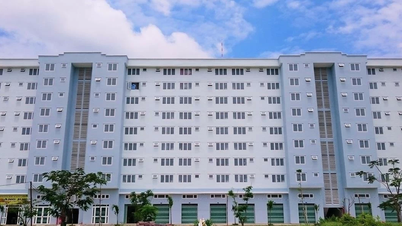












Comment (0)